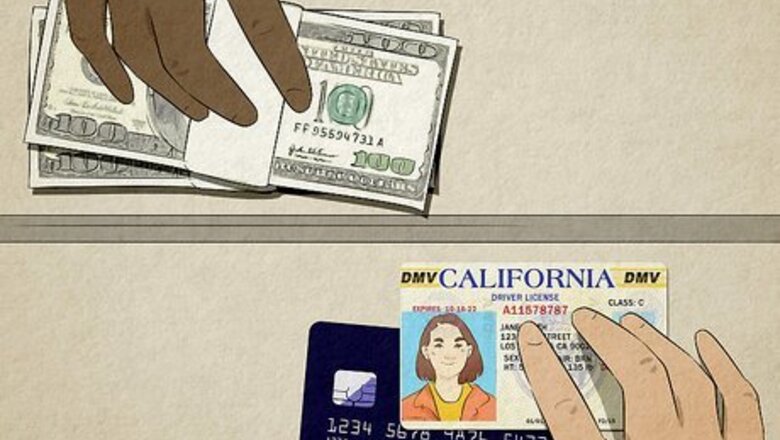
views
- Bring your credit card and photo ID to a bank that accepts your card and ask for a cash advance at the teller window.
- Get cash back at a store with your credit card, or buy a prepaid debit card and take it to an ATM.
- As an alternative way to pay, use convenience checks or purchase a money order.
- Be aware that withdrawing cash from your credit card charges you a fee and a higher interest rate that starts accruing immediately.
Getting Cash Without a PIN
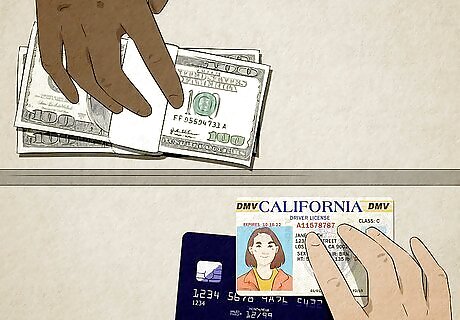
Go to a bank that accepts your credit card and ask for a cash advance. To get a cash advance at a bank, all you need is your credit card and a photo ID, such as your driver’s license or passport. Just walk into any bank or credit union that works with your credit card company; most institutions list the cards they accept on their front door or window. Present your information to a teller and let them know how much cash you want to withdraw. Withdrawing cash from your credit card charges a fee of about 3-5%. For example, if you take out $100 and the fee is 5%, you pay $5 for the withdrawal. Some cards have a cash advance limit that’s the same as your credit limit, while others only allow you to withdraw a certain percentage of your total limit. Check your online account or call your credit card company to find out your cash advance limit. Check your credit card balance online or by calling your credit card company before you withdraw cash. You aren’t able to take out more cash than the current balance on your credit card.
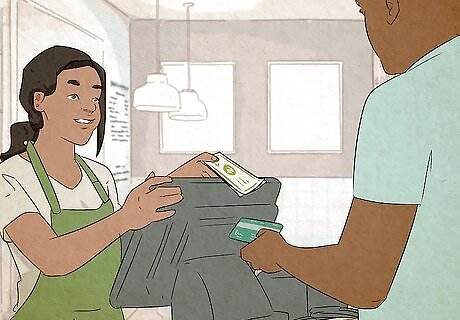
Check if your credit card gives you cash back at stores. Some credit cards, such as Discover cards, allow you to withdraw money when you buy items at a store. This works similarly to getting cash back from a register when you make a purchase with a debit card. Look up your card details online, go to your online banking account, or call your card’s customer service to see if they give you cash back. Most stores have a cap on the amount of money you’re allowed to withdraw. You’ll see your cash back options when you check out at a register. Or, ask a store employee what their limits are.
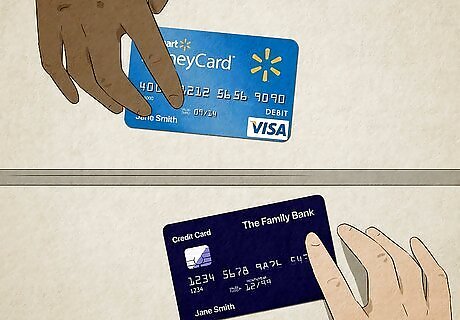
Purchase a prepaid debit card with your credit card. A prepaid debit card is a lot like a regular debit card, except it doesn’t have a bank account associated with it. Big-box stores like Walmart and Target sell prepaid cards that are often loaded with $50-100 on the card. Use your credit card to purchase a card and set up a PIN by calling the number on the card. Then, take it to an ATM to withdraw the cash. There are often small fees for activating your card and adding more money. Some cards also charge a monthly maintenance fee. Taking out cash from an ATM usually costs a small fee of about $2-3. Some cards aren’t preloaded, so you get to choose how much money is on the card. When there’s no more money on the card, either load it with more or dispose of it.
Other Ways to Make Payments
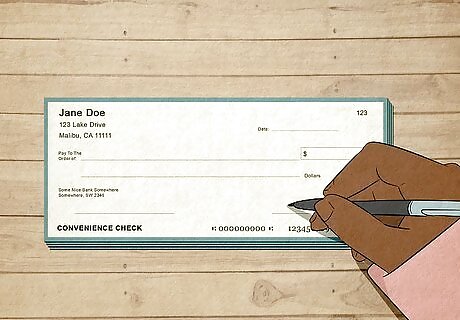
Ask your credit card company to send you a convenience check. While a convenience check isn’t cash, it’s a great alternative that works similarly to a check. The difference is convenience checks withdraw money from your credit card. Most credit card companies send you blank checks when you open up your card. If you don’t have any checks on hand, call your credit card’s customer service line or visit their website to request some. Requesting convenience checks typically costs you a small fee. When you ask for checks, your credit card company prints them out and sends them to you in the mail. Using a convenience check typically incurs the same fees and high-interest rates as getting a cash advance from an ATM or bank. You also have the same cash advance limit as your card.
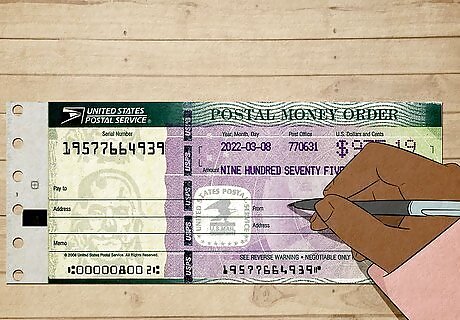
Get a money order from a post office or big-box store. A money order is a slip of paper that’s used to make transactions and purchases. It works similarly to cash and checks, except you have to purchase it from a bank, post office, drugstore, or big-box store like Walmart. You simply specify how much money you want on the order and fill it out with the name of the person you’re giving the money to, their address, and your name and address. Using your credit card to buy a money order usually incurs the same fees and interest as making a cash advance. It costs a small fee to purchase a money order, typically $1-5. Drugstores and supermarkets like Walmart are often cheaper than banks and post offices.
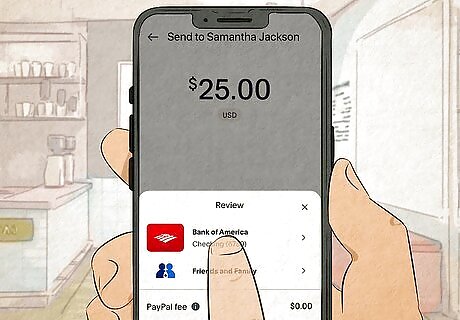
Pay people with an online payment service like Venmo or PayPal. Using Venmo, PayPal, or CashApp removes the need to withdraw cash in the first place. Simply download the app of your choice to your phone, or access it using your internet browser. Then add your credit card information to the payment method page in the app. Use the app to pay for items at stores that accept Venmo, PayPal, or CashApp. Or, send money to people and friends that you need to pay. Making purchases and sending money with your credit card typically incurs a small cash advance fee of around 3%.
Can I withdraw cash at an ATM without a PIN?
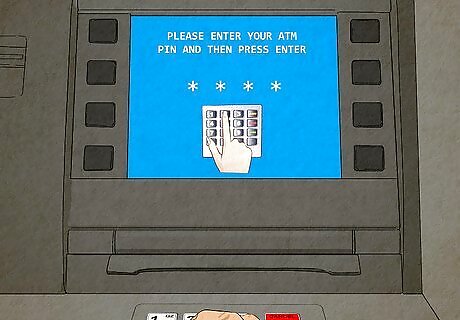
No, you have to enter your PIN when you withdraw cash from an ATM. ATMs require a PIN to ensure you are the owner of your card and to protect the bank and machine from fraud. If you don’t know your PIN, simply use one of the other ways described in this article to withdraw cash from your credit card.
How do I get or recover a credit card PIN?
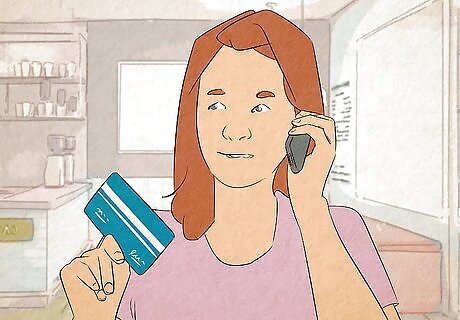
Request a credit card PIN online or by calling your credit card company. It’s not the end of the world if you forgot your PIN, need to change it, or never set one up. Most companies give you the option to change or make your PIN on your online credit card account. Or, simply call your credit card’s customer service line to request a new PIN. Most credit card companies send you your new PIN in the mail in 7 to 10 days. If you’re updating your PIN using your online account, some banks will email or text you your new PIN.











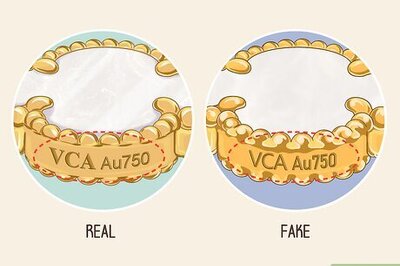






Comments
0 comment